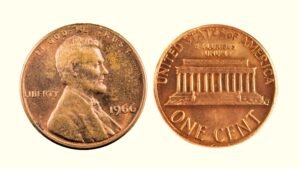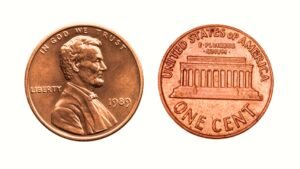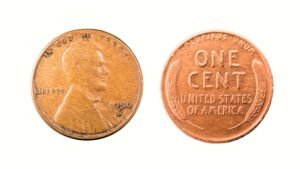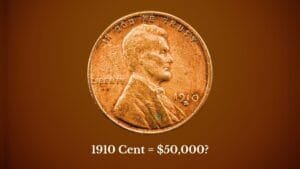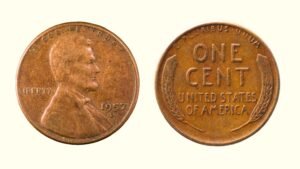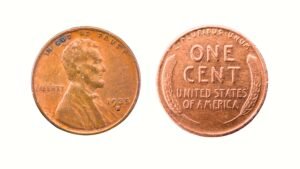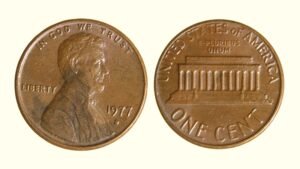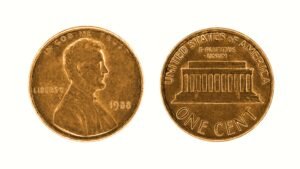Got a 1962 Lincoln penny jingling in your change jar? You might want to take a closer look – because some of these small cents are worth serious cash, like a rare MS-67 penny Red penny that commanded a whopping $12,000 at auction! If you want to know whether your 1962 penny is worth big bucks, learn about all the rare features to spot in this guide!
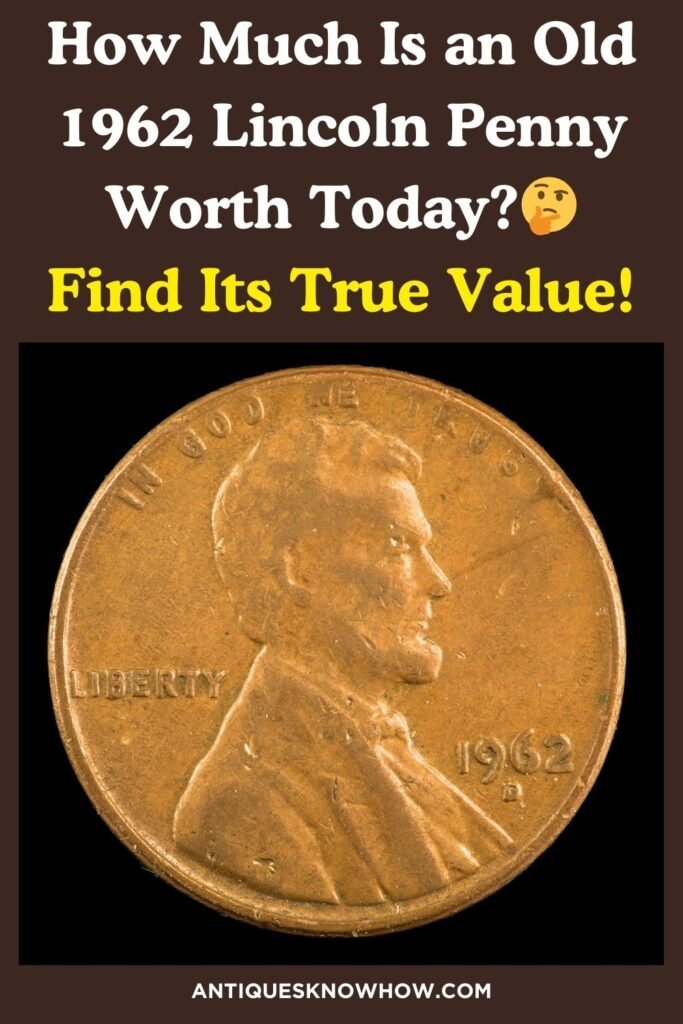
The average value of a circulated 1962 Lincoln penny is around $0.01, but uncirculated examples can command high prices from $20 to $10,000 or more, depending on grading and mint marks.
Brief History of a 1962 Lincoln Memorial Penny
The 1962 Lincoln Memorial Penny continued the Memorial design legacy introduced in 1959, replacing the traditional wheat reverse design from the Lincoln cent series. Part of the longest-running design in American coinage history, these pennies were struck in large numbers at both the Philadelphia and Denver mints.
Despite the high mintage, the 1962 Lincoln cent holds a significant place among coin collectors, due to its legacy and its rare features, such as the Struck on Fragment and certain mint marks, which can hike its value to thousands!
| 1962 Lincoln Memorial Cent | Key Features & Facts |
| Coin Composition | 95% Copper, 5% Tin and Zinc |
| Minting Location | Philadelphia, Denver |
| Minting Year | 1962 |
| Face Value | 1-cent (0.01$) |
| Weight | 3.11 grams |
| Diameter | 19.05 mm |
| Thickness | 1.52 mm |
| Designer | Victor David Brenner, Frank Gasparro |
| Mint Marks | D – Denver Mint, No Mint Mark – Philadelphia Mint |
| Total Mintage | 2,402,411,019 coins |
How to Identify a Real 1962 Lincoln Cent (Design & Features)
To ensure a 1962 Lincoln Memorial penny is genuine and not a counterfeit, you must identify its unique design on both sides and its other physical characteristics:
1962 Lincoln Cent Obverse:
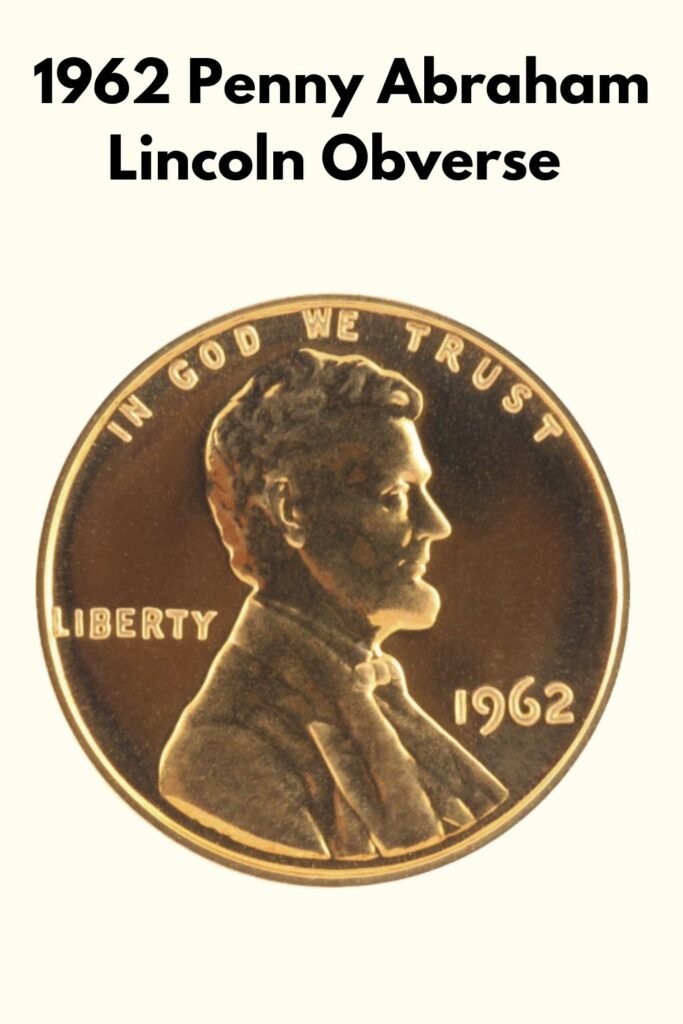
- A right-facing profile of Abraham Lincoln
- “IN GOD WE TRUST” above Lincoln’s head
- “LIBERTY” to the left of Lincoln’s bust
- The mint date “1962” to Lincoln’s right
- The mint mark, D, if present, below the date
- The designer’s initials (VDB from Victor David Brenner) below Lincoln’s shoulder (might not be visible with naked eye)
1962 Lincoln Penny Reverse:

- The Lincoln Memorial building at the center
- A figure at standing inside the building at the center
- “UNITED STATES OF AMERICA” along the upper edge
- “E PLURIBUS UNUM” above the building
- “ONE CENT” at the bottom
- The designer, Frank Gasparro’s initials “FG” on the right of the staircase
Coin Composition, Weight & Size Details
The 1962 Lincoln cent is composed of bronze alloy with 95% copper and 5% tin and zinc, resulting in a rich, reddish hue. As for its size, the coin measures 19.05 mm in diameter, 1.52 mm in thickness, and weighs 2.5 grams.
Also, the 1962 penny has a smooth edge, which is a defining characteristic of the Lincoln cent, differentiating it from other American coins of the era.
Finding a 1962 Lincoln Penny Value (5 Key Factors)
The final value of an old 1962 Lincoln cent largely depends on its condition, wear and tear, mint mark, if any, proof finish, and any rare minting errors that it possesses:
1. Coin Grades & Condition
The grade of a coin which indicates its condition—ranging from Poor (P-1) to Mint State (MS-70)—greatly influences its value. It depends on the coin’s wear, clear details, and color. The differences in grade can translate into hundreds, or even thousands, of dollars.
For example, an uncirculated 1962 Memorial penny in MS-67+ grade once sold for a stunning price of $8,812 on Heritage Auctions. On the other hand, the same coin is worth only $10-$15 in MS-65 grade.
2. Penny Color & Toning
The color of the 1962 Lincoln penny, which can change overtime due to toning and oxidation, plays a critical role in determining its value. Lincoln cents exhibit the following designations:
- Red (RD): A fully red 1962 penny doesn’t show any signs of toning and oxidation. These coins are worth the most, sometimes exceeding fetching $1,000 to $10,000 in high grades.
- Red-Brown (RB): Red-brown pennies feature a mix of red and brown, generally valued at lower rates than red coins. The average value of these coins range between $5 to $40 in uncirculated state.
- Brown (BN): Pennies that have turned completely brown due to oxidation are graded BN. The least valuable of all, they can fetch only a few cents.
3. 1962 Penny Mint Marks & Mintage
| Coin Grades | Condition Details | 1962 No Mint Mark Penny Value | 1962 D Wheat Penny Value |
| Poor (0) to Extremely Fine (XF45) | Significant wear, faded but visible details | 1-5 cents | 1-5 cents |
| Almost Uncirculated (AU50) to Mint State (AU58+) | Slight wear on highest points, visible marks or blemishes | 20 cents to 50 cents | 10 cents to 30 cents |
| Mint State (MS60 – MS64) | Uncirculated with minimal wear | $2 – $7 | $1 – $8 |
| Mint State (MS65 – MS66+) | Nearly flawless with very minor imperfections | $8 – $150 | $7 – $80 |
| Mint State (MS67 – MS67+) | Well-preserved with no major flaws | $180 – $8,800+ | $300 – $1,560+ |
| Mint State (MS68 or Above) | Nearly perfect, luster, no major marks or flaws | N/A | N/A |
The mintage of a coin can affect its rarity. While the total mintage of over 2.4 billion coins makes the 1962 penny quite common, different mint marks contribute to the coin’s value.
1962 No Mint Mark Penny Value (Mintage – 606,045,000)
The Philadelphia Mint produced over 606 million 1962 Lincoln cents, all with no mint mark. In circulated condition, 1962 no mint mark pennies are worth only a few cents.
Uncirculated coins can fetch up to $5-$60 in MS-62 to MS-66+ grades, while MS-67 and higher examples can reach $250 to $8,800 or more, like the one sold for $8,813 on Heritage Auctions!
1962 D Lincoln Penny Value (Mintage – 1,793,148,400)
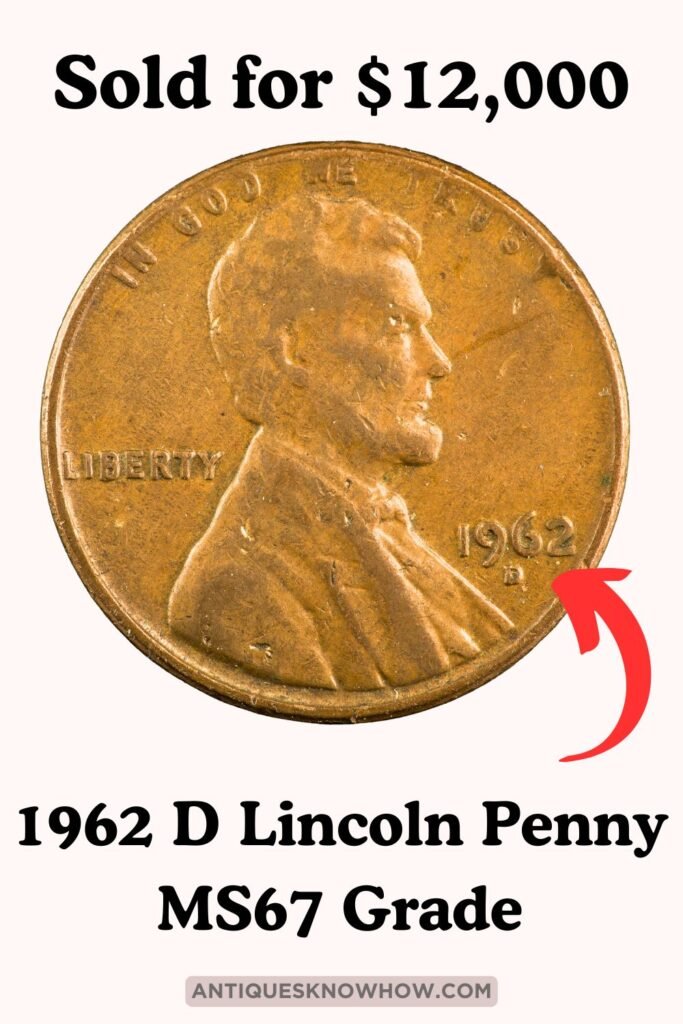
With a total production of over 1.7 billion coins at the Denver Mint, the 1962 D Lincoln penny is more common than the 1962 no mint mark cents, and hence, less valuable.
An average 1962 D penny is worth its face value but uncirculated examples can fetch $7 to $1,500 or slightly more in MS-65 to MS67+ grades. The most expensive MS-67 1962 D Lincoln penny was sold for an eye-popping price of $12,000 on David Lawrence Auction!
4. 1962 Lincoln Cent Proof Strike
The Philadelphia Mint also released 3,218,019 special strike proof coins for coin collectors. A 1962 penny proof coin also doesn’t have a mint mark, but its reflective surface, frosted devices, and sharp details distinguish it from regular no mint mark pennies.
The value of standard red proof 1962 Lincoln cents ranges from $8 to $160, depending on grades. Some proof coins may exhibit a subtle contrast between raised designs and reflective fields; they are almost the same price as the standard proofs, i.e., $10-$150 or slightly more.
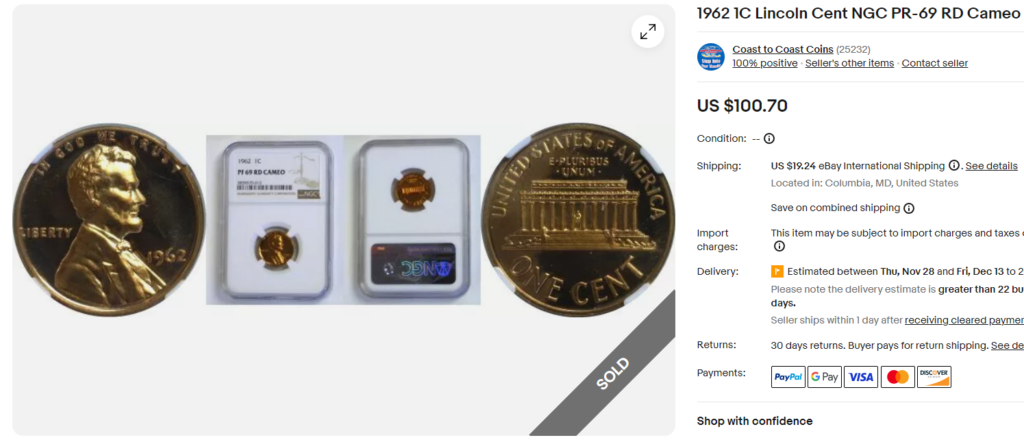
Proof coins with a stronger contrast, known as Deep Cameo or Ultra Cameo, are rarer and more valuable. A high-grade PR-69 1962 Deep Cameo proof penny can fetch $400 to $1,500, while low grade examples are worth $10 to $160.
5. 1962 Lincoln Penny Errors & Varieties
Certain minting errors can dramatically increase a 1962 Lincoln cent coin’s value due to their rarity:
Struck on a Silver Dime Planchet
This dramatic error occurs when a dime planchet mistakenly enters the penny press, resulting in a rare coin with a 1962 penny with a silver dime composition and smaller size. This error coin will weigh around 2.5 grams instead of the standard 3.11 grams.
You can expect $500-1,500 for XF-AU examples of this error coin, while mint condition pieces can command $2,000-3,000. For example, an AU55-grade 1962 silver dime penny was auctioned for a stunning price of over $820 in a coin auction!
Full Brockage Reverse
A 1962 penny with brockage reverse is created when a previously struck coin sticks to the die and impresses a mirror image onto the next planchet. The result is a rare 1962 penny with normal obverse but a reversed, incused impression of the obverse on the reverse side.
A circulated 1962 penny with full brockage reverse error in AU53 grade sold for over $515 on Heritage Auctions! Well-preserved high-grade examples with this error can fetch $1,000 or more!
Struck on Fragments
This rare error results from random scrap metal accidentally entering the coining press. In this case, it’s a bordered bronze fragment weighing 18.5 grains or 1.2 grams. An MS-63 BN 1962 Lincoln cent Struck on Scrap (listed 18.5 grains as per Heritage Auctions) was bought for $450!
In addition to these, look for common mint errors, such as Double Die errors, Re-punched Mint Mark error, Off-center strike error, and Die to Cud break errors. These anomalies can also add a significant amount to your 1962 penny’s average value!
Note: This article is intended for informational, educational, and entertainment purposes only. Some images are illustrative and may not represent actual brands, products, or related entities. All trademarks, product names, brand logos, packaging, and other intellectual property referenced remain the exclusive property of their respective owners. Any brand mentions or references are provided solely for descriptive and educational context and do not imply any formal or commercial association.


